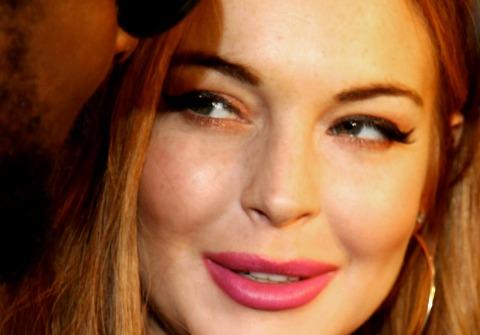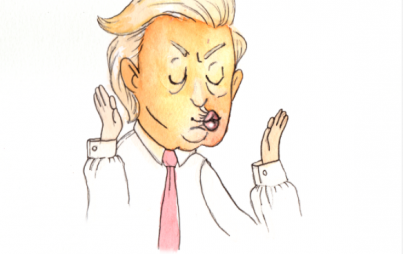
Lindsay Lohan’s new docu-series has debuted on Oprah’s OWN network, and the press has (predictably) sunk its claws into the aftermath.
The show reached only 693,000 viewers—though millions more were salivating to hear how the doomed starlet was doing. Not to worry, though, as our trusty entertainment media was there to recap the highlights and inform us of the major moments.
PerezHilton.com, The Mirror, The New York Times and dozens of others have confirmed our collective assumptions: Lindsay Lohan is still troubled, still damaged, and worst of all—still undesirable professionally:
“You all know that LiLo can't do things without drama… So, no surprise, last night's debut episode of Lindsay was absolutely CRAZY! Seriously, we NEVER thought we'd see the REAL Lindsay Lohan! And by real LiLo, we mean crying, shouting, flipping out Lindsay!” -Perez Hilton
“Lindsay Lohan’s hopes of reinventing herself as sober, calm and together were hindered last night as viewers of her new docu-series saw her lose her cool in a series of angry outbursts.” -The Mirror
“Never mind that much of the last seven or so years has been a Lindsay Lohan reality show, taking place on TMZ, in tabloids, in the courts and in rehabilitation clinics. Ms. Lohan has failed for so long and so publicly that it no longer seems reasonable to expect her to succeed, a possibility that a show like this at least needs.” -The New York Times
Perhaps the NYT’s quote is most notable, as it confirms the general assumption that what we see of the actress, as fed to us by paparazzi, camera crews, unnamed sources and tabloid headlines is a fairly accurate portrayal—and that therefore Oprah’s foray into LiLo’s tailspin will be nothing new to viewers.
When I sat down to watch the actual first episode of “Lindsay,” I was thrown by what I saw. I don’t want to get your hopes up; Lindsay Lohan hasn’t morphed into an entirely new being, but the screaming misfit promoted in the headlines was much more of a sideline skit than the main act. Much of the star’s words about re-grounding herself, reclaiming her health as a whole and stabilizing her topsy-turvy world did sound like mantra lines Lohan had memorized—but what does that say about us as an audience that we take this as part of her unavoidable failure (after all, memorization requires remembering, an oft-sober activity)?
We have a history of cheerleading tragic women throughout history; from Judy Garland to Amy Winehouse, we simultaneously want them to fail and succeed—but is this for our own entertainment or is there a deeper meaning?
We certainly pick and choose how we interpret celebrities’ explorations into the world of drugs and alcohol; Miley Cyrus is among the latest examples of former glorified youth now spitting in the faces of their ever-innocent caricatures and our reaction has generally been one of annoyance rather than concern. Will we feel the same once she shaves her head and starts slamming umbrellas into cars à la Britney?
Drew Barrymore is an example of a fully-blossomed recovery (the superstar had been in rehab twice by the age of 13) and we totally love her, don’t get us wrong, but something tells us we would find her even more fascinating if she were to dabble in the dark arts of addiction once again. Why do we find the decay of feminine beauty to be so alluringly mysterious?
Surprisingly (not surprisingly), Oprah herself explored the topic on her Super Soul Sunday show. Her panel cited a medicated nation filled with those “aching for things to celebrate,” while avoiding living their own lives as a primary problem, along with their own theory of relativity (we find comfort in relating our own suffering to another’s, especially one we view in high regard).
With the number of female celebrities falling into the recesses of addiction and mental instability noticeably growing, we think the clear choice is to admit the real reasoning behind why we’ve put these women into a fishbowl for our own poking and prodding. In Lindsay Lohan’s case, we can honestly say that regardless of the motivation (we can’t avoid the fact that Oprah’s got the big bucks), we’re grateful for the however-heavily edited footage of this segment of the star’s life. Why? Not because we’re salivating, not because we want to see her fail, not because she’s (admittedly) a little crazy, but because for whatever rhyme or reason, “Lindsay” the docu-series and its press wake have left us examining our own behavior patterns and assumptions—and feeling a little ashamed for judging others, including LiLo.
Image: Wikimedia






